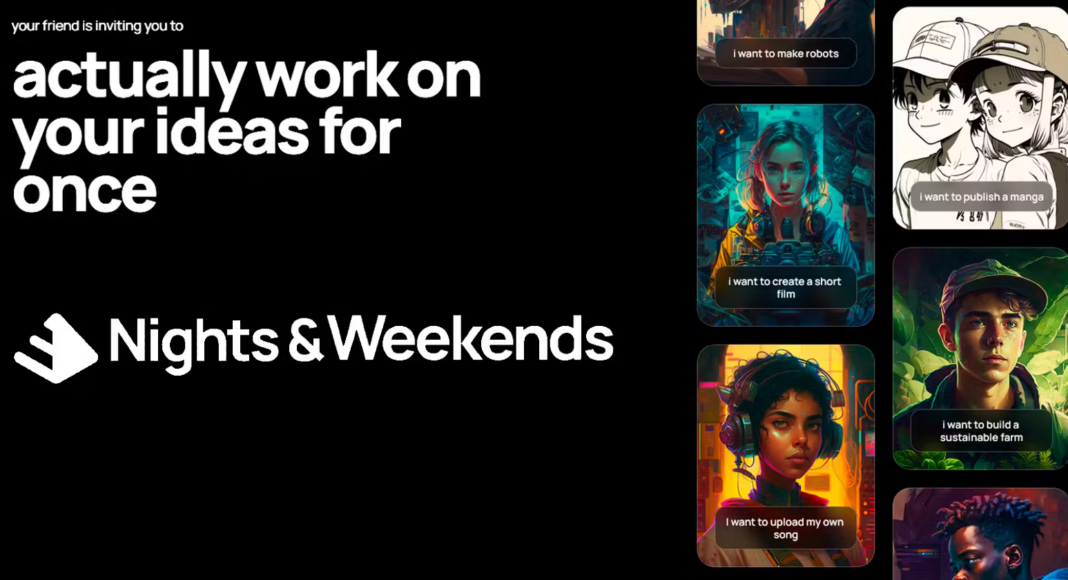In this second episode of The Bowled Diaries, I want to share my experience with the Buildspace Nights and Weekends and the pivotal role it played in my journey of building the Bowled. The event not only provided me with valuable insights and advice but also changed my perspective on product development and launching.
Before Nights and Weekends
My journey with Bowled began in December 2022. I built a prototype and presented it at the ETHIndia hackathon in Bangalore. Impressively, the game secured a spot in the top 10 among 400 projects. Encouraged by the positive feedback from the audience and judges, I continued to develop the game and joined Season 2 of “Nights and Weekends.”
Nights and Weekends is a six-week program where builders from around the world come together to build their ideas into products. Participants work on their ideas over six weeks, and at the end of the program, they showcase their products in San Francisco.
As a developer, I held the firm belief that a product needed to be fully developed before launching. I was worried that displaying an unfinished or “half-baked” product would turn off potential users and result in low adoption. As I became more involved in “Nights and Weekends,” my perspective on product development began to shift. Listening to various founders share their journeys of building prototypes during hackathons, showcasing them to the world, and subsequently building successful companies was eye-opening. This experience taught me the importance of building public and early user feedback into the product development process.
A series of transformative conversations
During the third week of January, Buildspace hosted office hours with their team for participants in Nights and Weekends. At that time, I had only completed 1% of my intended project and felt embarrassed to showcase it to anyone. Little did I know, the conversations I had with the Buildspace team would change my approach to Bowled and product development in general.
Raza’s advice on Audience Engagement
Raza, a Growth Engineer at Buildspace, provided me with valuable tips on engaging and building an audience on social media.
He emphasized the importance of building in public and being transparent about the development process. He suggested posting progress updates on a regular basis, sharing behind-the-scenes insights, and creating engaging content via blogs and tweets. Raza’s advice struck a chord with me because I realized that involving the community in the development process could generate valuable feedback while also instilling a sense of ownership among early users.
Tair’s guidance on Efficient Engineering
Tair, a former CTO with experience at multiple companies, addressed my concerns about overengineering and developing unnecessary, complex solutions.
He advised me to concentrate on the overall product and build only what is required using readily available frameworks. I could ensure the efficient allocation of time and resources by using a lean approach, allowing the delivery of a functional and streamlined product that meets the needs of users. Tair’s advice assisted me in shifting my mindset away from chasing the perfect solution and toward delivering value quickly and iterating based on user feedback.
Farhaj’s User-First Philosophy
Farhaj, Farhaj, a business development expert at Buildspace, advised me to prioritize users first by building a product that people genuinely want to use.
Farhaj’s user-first philosophy stresses the importance of building a strong user base before pursuing monetization strategies. This approach taught me that the best way to create a successful product is to address the users’ needs and desires, thereby cultivating a loyal community that will support the product’s growth.
Furqan Rydhan’s Skateboard development approach
Furqan Rydhan, the founder of Thirdweb and Founders Inc., shared insights on developing a product in incremental stages. He used the analogy of building a car by first building a skateboard.
“You must remember that the goal is to get the user from point A to point B, not to build a car!” he says. This highlights the importance of quickly providing value to users, gathering feedback, and gradually improving based on their needs and preferences. Furqan’s method taught me the value of starting with a simple solution, such as a skateboard, and gradually improving it until it achieves the desired result. This iterative process allows for continuous improvement by ensuring that the product evolves to meet changing user needs and expectations.
Farza’s “Fuck around and Find out” mindset
Finally, Farza, the founder and CEO of Buildspace, stressed the significance of being experimental and innovative.
Tinkering with every possible option without fear of failure results in valuable learning experiences and refined products. Farza’s “Fuck around and figure it out” emphasized the importance of experimenting with different solutions, learning from each experience, and iterating on the product based on those discoveries.
Apply for the next season of Nights and Weekends
The Nights and Weekends event not only helped me refine my approach to building Bowled, but it also reshaped my entire perspective on product development. During the program, I learned the importance of building in public, iterating quickly, and learning from every step of the journey from the Buildspace team and other founders. Stay tuned for the next episode of “The Bowled Diaries,” in which we delve into the N&W IRL event in San Francisco.
